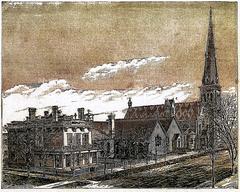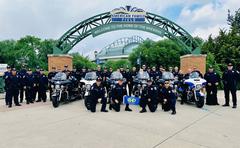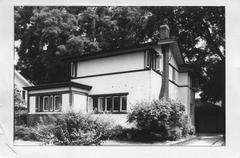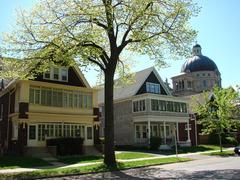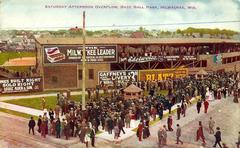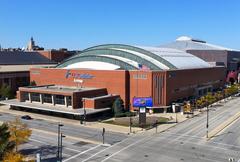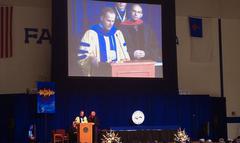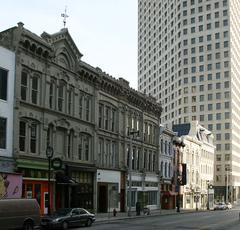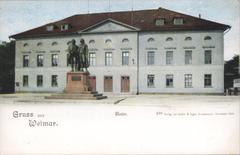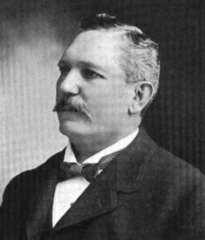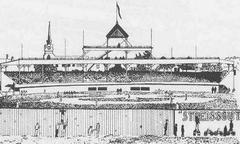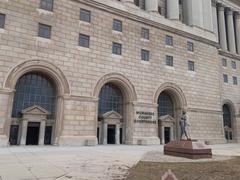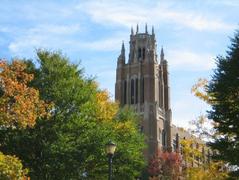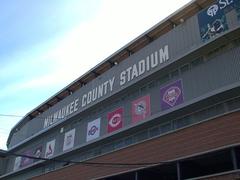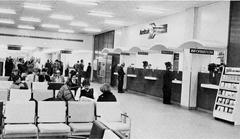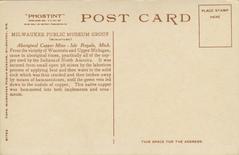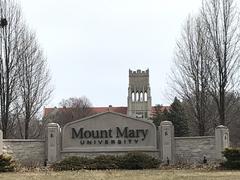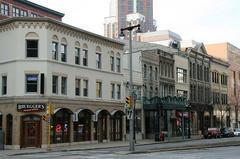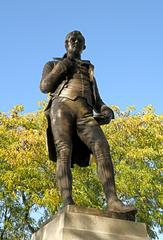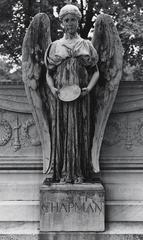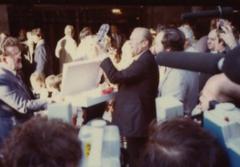America’s Black Holocaust Museum Milwaukee: Visiting Hours, Tickets, and Historical Sites Guide
Date: 04/07/2025
Introduction
America’s Black Holocaust Museum (ABHM) in Milwaukee, Wisconsin, is a vital cultural institution dedicated to the preservation and illumination of over four centuries of African American history and resilience. Founded in 1988 by Dr. James Cameron—the only known survivor of a 1930 lynching attempt—ABHM stands as a beacon for truth, remembrance, and healing. Inspired by Cameron’s experiences and his 1979 visit to Yad Vashem in Jerusalem, the museum confronts the brutal legacy of slavery, lynching, segregation, and systemic racism in America. ABHM’s unique mission is rooted in the philosophy that “the truth would set you free,” advocating for honest confrontation, empathy, and reconciliation (ABHM Mission; Encyclopedia of Milwaukee; Visit Milwaukee).
Situated in Milwaukee’s historic Bronzeville neighborhood—a hub of African American culture and history—ABHM offers immersive, chronological exhibits that trace the African American experience from pre-captivity Africa through the Middle Passage, slavery, Jim Crow, the Civil Rights Movement, and contemporary social justice issues. The museum features interactive multimedia, oral histories, and rotating special exhibits, engaging diverse audiences in its mission. After a period of closure and a robust virtual presence, ABHM reopened in 2022 with a new, accessible facility and expanded programming, thanks to substantial community support.
This comprehensive guide offers essential information on visiting hours, ticketing, exhibits, programming, accessibility, and travel tips to help you plan a meaningful and educational visit to America’s Black Holocaust Museum.
Table of Contents
- Historical Background and Founding Vision
- Planning Your Visit
- Exhibits and Educational Programming
- Accessibility and Visitor Amenities
- Community Engagement and Nearby Attractions
- Frequently Asked Questions (FAQ)
- Conclusion and Call to Action
- References and Official Links
Historical Background and Founding Vision
Dr. James Cameron: Life and Inspiration
Dr. James Cameron (1914–2006) founded ABHM after surviving a 1930 lynching attempt in Marion, Indiana, at the age of 16. His personal trauma fueled decades of activism and education. Cameron was inspired by his 1979 visit to Yad Vashem, leading him to establish a museum devoted to the Black Holocaust—documenting the violence and systemic racism endured by African Americans (Shepherd Express; Wisconsin Life).
Establishment, Mission, and Growth
ABHM opened on Juneteenth Day in 1988 in Milwaukee’s Bronzeville neighborhood, with the city recognizing its importance by selling Cameron a building for $1. Early exhibits included artifacts from Cameron’s own life and immersive murals depicting the Middle Passage and historic Black communities (Encyclopedia of Milwaukee). The museum’s mission is to raise awareness of the harmful legacies of slavery and Jim Crow, promoting racial repair and healing (ABHM Mission; Wikipedia).
ABHM became a vital institution, hosting permanent and traveling exhibits, developing a research center and library, and supporting educators and students (Museums Database). Following Cameron’s death and financial difficulties, the museum closed in 2008 but continued to serve its mission through a virtual museum launched in 2012, reaching a global audience (Wikipedia).
Rebirth and Contemporary Vision
A $10 million anonymous donation enabled ABHM’s physical reopening in February 2022, restoring its role in Milwaukee’s Bronzeville district (Milwaukee Bronzeville Histories). ABHM is a member of the International Sites of Conscience Coalition, linking it to a worldwide network of historic sites focused on memory and human rights (ABHM Mission).
Planning Your Visit
Location and Access
- Address: 401 W. North Avenue, Milwaukee, WI 53212 (ABHM Contact)
- Transit: Accessible via Milwaukee County Transit System; parking available in adjacent lots and nearby streets.
Visiting Hours
- Tuesday–Saturday: 10:00 AM – 5:00 PM
- Sunday & Monday: Closed
- Note: Hours may vary on holidays; always check the official website for updates.
Admission and Tickets
- General Admission: $10 (adults 18+)
- Discounted Admission: $7 (seniors 65+, military, students)
- Children under 12: Free
- Booking: Purchase tickets online (ABHM Tickets) or at the entrance. Group rates and guided tours are available by appointment.
Guided Tours
- Availability: Guided tours are available for groups of 10 or more and must be scheduled in advance (Tour Request Form).
- Experience: Tours are led by knowledgeable docents or “griots,” providing context and facilitating dialogue.
Exhibits and Educational Programming
Permanent and Special Exhibits
ABHM’s galleries present a chronological, in-depth exploration of African American history:
- Life in Africa Before Captivity: Celebrates pre-enslavement African cultures.
- The Middle Passage: Immersive representations of the transatlantic slave trade.
- Three Centuries of Enslavement: Examines legal and social frameworks of slavery.
- Reconstruction and Jim Crow: Details segregation and Black resilience post-Civil War.
- Civil Rights and Beyond: Showcases activism, key legislation, and ongoing struggles.
- Contemporary Issues: Links historical injustices to current movements like Black Lives Matter.
Special Exhibits: Rotating displays such as “Risking Everything: A Freedom Summer Exhibit” and “Unmasked: The 1935 Anti-Lynching Exhibits & Community Remembrance” provide fresh perspectives on pivotal events (Featured Exhibits).
Interactive and Multimedia Elements
- Oral Histories: Personal narratives and testimonies.
- Digital Timelines: Comprehensive, interactive historical overviews.
- Art Installations: Works by Black artists exploring themes of memory, hope, and justice.
- Virtual Museum: Over 3,700 pages of digital exhibits, primary documents, and educational content (Virtual Museum).
Educational and Community Programs
- Workshops, Lectures, and Film Series: Regular events with historians, activists, and community leaders.
- School and Youth Programs: Curriculum-aligned tours and interactive sessions.
- Community Dialogues: Forums on race, equity, and reconciliation.
- Book Club: Highlighting Black authors (ABHM Book Club).
Accessibility and Visitor Amenities
- Wheelchair Accessible: Fully ADA-compliant with ramps and elevators.
- Assistive Services: Listening devices, braille guides, large-print materials.
- Restrooms: Accessible, gender-neutral facilities.
- Service Animals: Welcome.
- Gift Shop: Books, educational materials, and souvenirs.
- Community Room: Available for rental (Space Rental).
- Parking: Free lot; additional street parking nearby.
- Health and Safety: Follows local COVID-19 guidelines; masks and sanitization encouraged (ABHM Hours of Operation).
Community Engagement and Nearby Attractions
Bronzeville and Local Partnerships
ABHM is part of Milwaukee’s Bronzeville, a vibrant neighborhood with a legacy of Black arts, culture, and entrepreneurship. The museum collaborates with local organizations for programs in voter registration, education, and the arts (Through One City’s Eyes Exhibit).
Nearby Historical and Cultural Sites
- Bronzeville Center for the Arts
- Wisconsin Black Historical Society & Museum
- Milwaukee Public Museum
- Local Galleries, Murals, and Cultural Landmarks
Food and Community Spaces
- Kinship Café: Local Black-owned café.
- ThriveOn King: Community development hub.
Frequently Asked Questions (FAQ)
Q: What are America’s Black Holocaust Museum visiting hours?
A: Tuesday–Saturday, 10:00 AM to 5:00 PM. Closed Sunday and Monday. Check for holiday hours.
Q: How much are tickets?
A: $10 adults, $7 seniors/military/students, free for children under 12. Purchase online or at the door.
Q: Is the museum accessible?
A: Yes, ABHM is fully ADA-compliant and provides assistive services.
Q: Are guided tours available?
A: Yes, for groups of 10+ by advance booking.
Q: Can I take photos inside the museum?
A: Policies vary by exhibit; confirm at the front desk.
Q: Is there parking?
A: Yes, a free lot and nearby street parking are available.
Q: What COVID-19 protocols are in place?
A: Masks and sanitization are encouraged; follow the latest guidelines on the museum’s website.
Conclusion and Call to Action
America’s Black Holocaust Museum is a powerful testament to resilience, education, and the enduring pursuit of racial justice. By visiting ABHM, you engage with a profound narrative that honors African American history and advances critical conversations on race, healing, and reconciliation. Plan your visit by checking the official ABHM website for the latest hours, tickets, and programming.
Enhance your experience by downloading the Audiala app for guided tours and exclusive content. Stay informed through ABHM’s newsletter (Subscribe) and follow the museum on social media for updates on exhibits and events. Whether you are a Milwaukee local, a student, or a traveler, ABHM welcomes you to learn, reflect, and contribute to the ongoing journey toward justice and community empowerment.
References and Official Links
- America’s Black Holocaust Museum official website
- Visit Milwaukee: ABHM Re-opens to Heavy Fanfare
- Encyclopedia of Milwaukee: ABHM
- Wisconsin Life: Legacy of Dr. James Cameron
- Greater Milwaukee Foundation: Bronzeville’s Beacon of Hope and Healing
- Shepherd Express: Dr. Cameron’s Story
- ABHM Mission and History
- ABHM History & Impact
- Museums Database
- Milwaukee Bronzeville Histories
- ABHM Book Club
- ABHM Featured Exhibits
- ABHM Space Rental
- ABHM Virtual Tour
- ABHM Newsletter
- ABHM Contact
- ABHM Tour Request Form
- ABHM Hours of Operation
